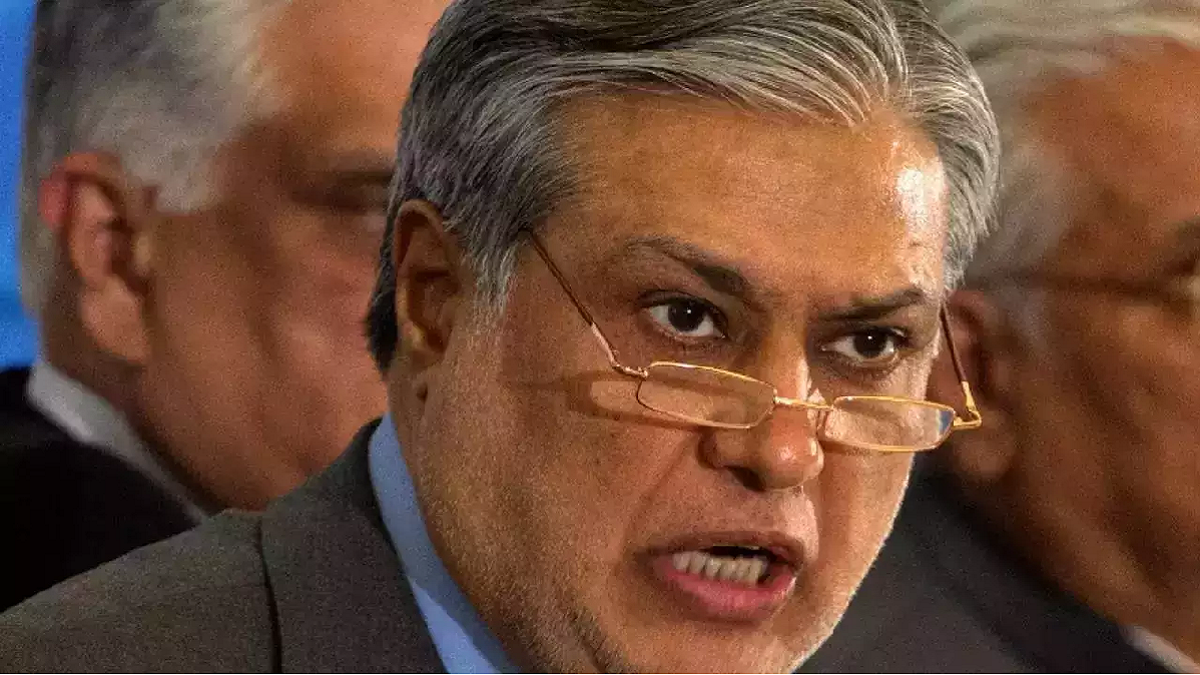Pakistan’s Finance Minister, Ishaq Dar, affirmed on Saturday that Pakistan had successfully navigated through a phase of “profound and sharp” economic vulnerability, consequently halting further financial deterioration. He delivered this statement during a press conference held in Islamabad, a day after the announcement of the 2023-24 budget. The proposed budget, totaling Rs14.46 trillion, forecasts a GDP growth rate of 3.5%.
Initiating the press conference, Finance Minister expressed his resolve to provide an exhaustive overview of the budget’s key components. He articulated the government’s primary goal to recuperate all economic losses, aiming to revert to the economic markers of 2017. Dar asserted that transparent and systematic implementation of the Public Sector Development Programme (PSDP) would effortlessly enable the realization of the projected 3.5% growth rate.
Acknowledging the country’s profound economic vulnerabilities, Dar affirmed that considerable strides had been made to prevent any further economic downfall. He highlighted the importance of making economic development a national ambition.
Agricultural renaissance was underscored by Dar as a central governmental objective, emphasizing the substantial untapped potential within this sector. He also drew attention to the significant proportion of the current budget directed towards debt servicing, expressing the government’s intention to decrease this burden and reverse the prevailing trend.
Finance Minister Ishaq Dar insisted that with economic growth, job opportunities would surge, macroeconomic indicators would stabilize, inflation would diminish, and employment would proliferate. This would subsequently lead to a reduction in the policy interest rate.
Dar disclosed the government’s conventional practice of establishing two committees within the Federal Board of Revenue (FBR), focusing on business-related and technical issues. He confirmed that these committees would be constituted by the upcoming Monday, post his approval.
Characterizing the budget as progressive and growth-oriented, Dar emphasized the consistency of the government’s ad-hoc relief measures, negating the impression of any unprecedented initiatives.
Read More: Contentious Finance Bill 2023-24 Sparks Debate in the Senate
Addressing concerns of a possible default, Dar reassured that Pakistan had always strategized towards self-reliance and self-sufficiency. He confidently stated that Pakistan will not default, critiquing those forecasting a default as part of the problem and contributors to the country’s economic losses.
When queried about the government’s promise for targeted fuel subsidies for motorists, Dar explained the plan involved higher rates for vehicles above 800cc, while those below 800cc would benefit from a Rs50 fuel discount.
Regarding the GSP Plus status, Finance Minister stated the commerce ministry and Foreign Office were actively dealing with the matter, expressing optimism about its extension for Pakistan.
As part of the budget proposals, Dar announced a salary increase ranging from 30% to 35% for government employees, a 17.5% increase in pensions for retired persons, and a raise in the minimum monthly wage from Rs25,000 to Rs32,000.
The budget projects the total current expenditure for FY24 at Rs13.3 trillion, 53% higher than last year’s budgeted figure, with defence expenditure comprising Rs1.8 trillion. The government has projected a fiscal deficit of Rs7.57 trillion for the coming year, the highest in history.
The tax collection target for the Federal Board of Revenue (FBR) has been set at Rs9.2 trillion, a 23% increase from last year’s target. The government has also set an inflation target of 21% for the next fiscal year, following last year’s actual high inflation of 28.2%.
Despite the fiscal challenges, Finance Minister Dar reemphasized his commitment to steering Pakistan on a path of economic growth and prosperity.



























